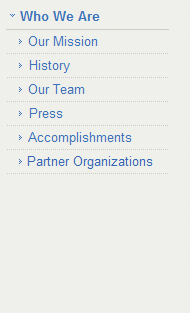| |


L.A.'s Top Ten Mensches: Our fourth-annual
salute to big-hearted Angelenos

Kim Krowne: 'Hakuna
Matata'Means Bringing Hope to Tanzanian Kids
December 31, 2008
Kim Krowne
thought she'd be attending medical school. Instead, the
24-year-old Northridge native, a graduate of Sierra
Canyon and Milken Community High School, spent most of
2007 and 2008 in Tanzania, improving the lives of
orphaned children and many villagers. She's been home
for the past several months and plans to return to
Africa in January.
Once a "total planner," Krowne's current philosophy of
life is more hakuna matata -- "there's no problem" in
Swahili, a language she speaks fluently. "Obviously,
this was not my plan. But I love it. There's so much
work to be done," she said.
The focus of her passion is the Matumaini Child Care
Center, a small three-room building in the village of
Rau that houses 20 children, ages 6 to 15. Krowne
discovered it in the fall of 2006 while taking a year
off after graduating from the University of
Pennsylvania, where she fulfilled her premed
requirements while majoring in the sociology and
anthropology of health, concentrating on Africa.
At that time, the nongovernmental, nonreligious and
nonprofit Matumaini Center cared for eight children
whose parents had either died of HIV/AIDS, were
alcoholic or couldn't afford their care. Newly opened,
it desperately needed funds for food and school fees,
less than $20 annually per student. Krowne immediately
e-mailed family and friends and raised $1,000.
She came home in March 2007 knowing she would return.
Her last week there, she had met Michelle Kowalczyk, 27
and a nurse, and asked her to look after the kids, who
then numbered 20. Kowalczyk also became enamored.
The following December, Krowne and Kowalczyk together
formed a nonprofit, Knock Foundation (www.knockfoundation.org),
to help solicit donations and grants. They also signed a
five-year contract with Matumaini (meaning hope in
Swahili) to fund the nonprofit and become
decision-making partners.
When they returned to Tanzania they facilitated a host
of improvements, including providing the children with
nutritious meals, medical and dental care and school
uniforms and supplies and paying salaries to the
orphanage workers.
They also had bunk beds built in the rooms, upgraded the
latrines, improved the general cleanliness and
constructed a chicken coop on the property.
Their reach extends as well to the greater community in
Rau and nearby villages, with the goal of making
families more self-sufficient. One such effort, dubbed
the Piggery Project, has provided 50 families with
supplies needed to build a pig hut, as well as two pigs
to raise. The families will keep some of the proceeds
from the sale of the pigs and reinvest the remainder.
They hope to expand the project.
They have also renovated a government medical clinic and
dispensary in Shimbwe, the only health facility
available to serve thousands of people in the
Kilimanjaro region. In addition to repairing the
clinic's roof and painting its rooms, they purchased
laboratory materials and medications.
Plus, they organized a two-day life skills and HIV/AIDS
seminar in conjunction with a local NGO that was
attended by 100 women and children. It will become a
yearly event.
To date, Krowne and Kowalczyk have raised about $85,000
and need an additional $35,000 for 2009 to sustain the
current projects. They would also like to construct a
new building for Matumaini, start another orphanage and
help provide secondary and university education for the
children, among other dreams.
Kowalczyk marvels at Krowne's ability to transcend
barriers. "Kim has been able to reach people who
otherwise would have been untouched," she said. "We'll
be doing this for the rest of our lives."
View Jewish Journal Website Article

Return To The Press |





